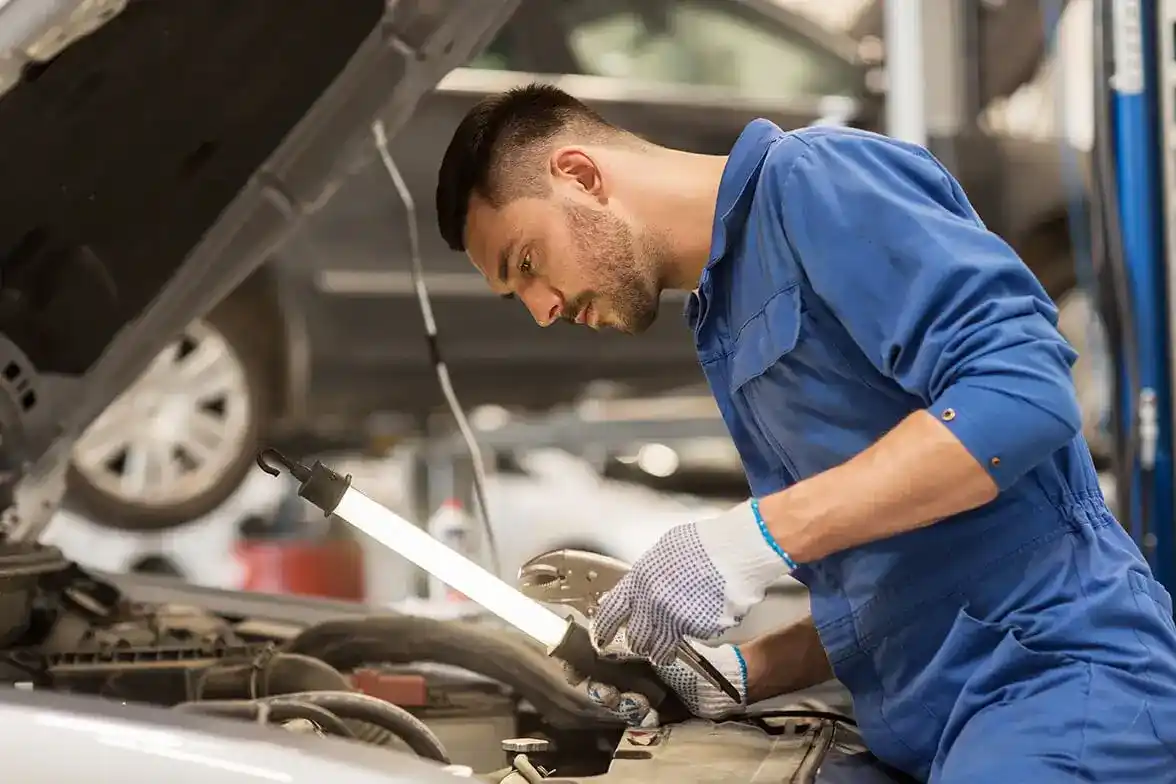6 reasons why your car engine is knocking
12 Aug 2024

A knocking sound coming from your engine can ring alarm bells but isn’t always as serious as you think. However, if you do hear your engine knocking, it’s important to address the issue as soon as possible to prevent further damage and breakdowns.
In this article, we’ll cover what causes a knock in the engine, with six common reasons. We’ll also look at how to identify the source of the issue to help you determine the best course of action.
1. Worn cambelt
Also known as a timing belt, the cambelt synchronises the rotation of various other components to ensure the engine valves open and close at the exact right moment. Eventually, a cambelt can become worn or frayed, causing a knocking sound inside your car.
Cambelt replacement requirements differ based on the car make and model. Take a look at the owner’s manual and if you’re in or approaching the recommended range, your cambelt could be the culprit.
2. Low oil pressure
Engine oil is a vital lubricant that keeps your motor running smoothly. Without it the engine will seize and the internal components of your engine can ‘knock’ against each other, which can lead to serious damage in the long term.
If the engine oil level is too low, the oil pump picks up air instead of oil, and air does not provide the lubrication needed to protect the moving parts of an engine. Knocking happens as a result of the bearings getting starved of oil, and they begin to melt from the heat of friction.
If your oil pressure is low, you may also have a leak. Try checking your oil and topping up if necessary. If you find it running low again quickly, this indicates a leak in the system, and you should contact a mechanic to organise a repair.
3. Valve lifter failure
A valve lifter is another essential engine component that transfers motion to open and close the valves. If your oil hasn’t been changed in a while, dirt can accumulate in the lifters, leading to a persistent knocking noise every time you start the engine. Lifters can also become clogged when you use the incorrect grade of oil for your engine.
Changing your oil and running a cleaning agent through the engine could be the simple solution to your engine knocking sound. Your vehicle’s handbook will give guidance as to how often oil will need changing for your particular vehicle and also the type of oil to use.
4. Old spark plugs
Spark plugs generate the electricity needed to ignite combustion in your engine. Without them, your car wouldn’t start. While spark plugs typically last thousands of miles, they do eventually need replacing. Your vehicle manual will specify how often you need to replace yours.
If your engine knocking sound is accompanied by other issues such as misfiring, stalling, struggling to start, and a ‘check engine’ light, it’s time to book in with a mechanic to have your spark plugs replaced.
5. Bad fuel pump
Used to transfer petrol or diesel from the fuel tank to the engine, a malfunctioning fuel pump is a common cause of engine knocking. When everything is working correctly, fuel is transferred into the combustion chamber where it is mixed with air – the oxygen needed for ignition.
When there is too much air inside the chamber, you may hear a knocking sound. This is known as running rich and is likely caused by a broken fuel pump.
In this case, you’ll need to consult with a trained mechanic for a fuel pump replacement.
6. Worn engine bearings
Engine bearings are there to reduce friction while supporting moving machinery. They facilitate the smooth movement of the pistons as they travel up and down in the engine, turning the crankshaft which transfers power to the wheels.
Over time, they can become worn out or come out of position, creating a rattling noise as the pistons clunk against the crankshaft.
If this is the cause of your engine knocking sound, you’ll need to book in for a repair with a qualified mechanic.
Can I drive with an engine knocking sound?
While some of the reasons behind an engine knocking noise are relatively simple to remedy, you shouldn’t drive your car until the issue has been diagnosed and resolved.
Continuing to drive can cause further damage to your car. If your engine fails on the road, you could even end up in an accident.
At the very least, you may find yourself with a more expensive repair bill as the fault continues to wreak havoc beneath your bonnet.
What to do if your engine is making a knocking sound
As soon as you notice a knocking sound, you should stop driving and park in a safe location.
Investigate the issue yourself by checking your engine oil and checking any warning lights, reading your owner’s manual for instructions. For the most accurate diagnosis and repairs, you should always consult a mechanic.
How to prevent engine knocking
To help prevent knocking or pinging noises from your engine, it's crucial to follow the recommended preventative maintenance schedule. This includes:
- Changing the engine oil and using the correct viscosity/grade per the owner's manual intervals
- Replacing air filters, spark plugs, timing belts, fuel filters, etc. on schedule
- Addressing any fluid leaks promptly to maintain proper lubrication levels
- Using high-quality gasoline and considering periodic fuel system cleaners
- Keeping up with all other scheduled maintenance for emissions
Sticking to the manufacturer's guidance for maintenance using approved fluids and parts allows components to operate properly, reducing the strain that leads to knocking noises. Consistent care is key to preventing costly engine damage down the road.
While some cases of engine knocking can’t be avoided, it’s best to stay on top of a preventative maintenance schedule to decrease your chances.


